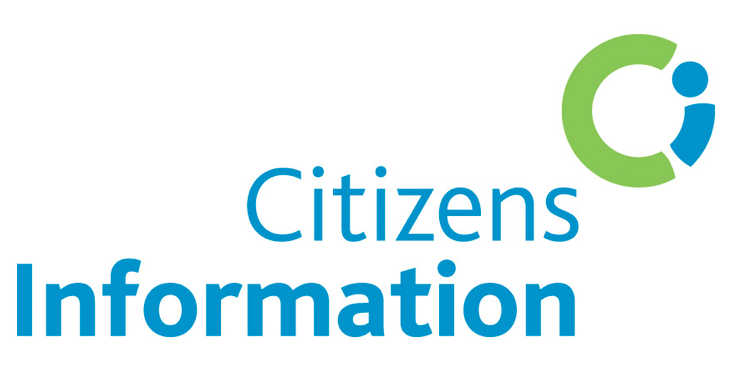 Know Your Rights has been compiled by Kerry Citizens Information Service which provides a free and confidential service to the public…
Know Your Rights has been compiled by Kerry Citizens Information Service which provides a free and confidential service to the public…
Your main rights and responsibilities as a tenant come from landlord and tenant law, as well as from the lease or tenancy agreement you have with your landlord.
Residential tenancies legislation outlines most tenant’s rights and responsibilities. Leases or other tenancy agreements cannot take away from your rights under the legislation. However, you and your landlord can agree on matters not covered by legislation in a lease or tenancy agreement, for example, who pays for the utility bills.
If you are renting a room in your landlord’s home you are not covered by landlord and tenant legislation, though you are covered if you rent a self-contained flat in your landlord’s home.
Continued below…
What are my rights as a private tenant?
• You are entitled to quiet and exclusive enjoyment of your home. If noise from other tenants or neighbours is disturbing you, ask them to stop and inform your landlord. If this does not work, you can make a formal complaint
• You are entitled to certain minimum standards of accommodation
• You are entitled to a rent book
• You have the right to contact the landlord or their agent at any reasonable time. You are also entitled to have the correct contact information for them.
• Your landlord is only allowed to enter your home with your permission. If your landlord needs to repair or inspect the property, it should be arranged in advance, unless it is an emergency
• You are entitled to be reimbursed for any repairs that you carry out that are the landlord’s responsibility
• You are entitled to have visitors to stay overnight or for short periods, unless specifically forbidden in your tenancy agreement.
• You must tell your landlord if you have an extra person moving in
• You are entitled to a certain amount of notice if your tenancy is being terminated
• You are entitled to at least 90 days’ notice if your landlord wants to review the rent, and there are rules about how often they can do this
• You are entitled to refer any disputes to the Residential Tenancies Board (RTB) without being penalised
• You have the right to a copy of any register entry the RTB has about your tenancy
• All homes for rent must have a Building Energy Rating (BER), stating how energy-efficient the home is.
Continued below…
What are my rights as a tenant in student-specific accommodation?
Tenants in student-specific accommodation are protected in residential tenancies legislation. They have most of the same rights as private tenants. However, there are some differences, for example, tenants in student-specific accommodation do not have security of tenure.
If you are a tenant in student-specific accommodation you only need to give your landlord 28 days’ notice when ending a tenancy. You can give your landlord more notice if you want. This came in under the Residential Tenancies (No. 2) Act 2021.
How long can I stay in my rented accommodation?
Security of tenure is a tenant’s right to stay in rented accommodation for a set amount of time. Generally, security of tenure applies automatically when you have been renting for 6 months and haven’t received a valid notice of termination from your landlord in that time.
When you have security of tenure, your landlord can only terminate your tenancy for a limited number of reasons. You can get details of these from your local Citizens Information Centre.
The amount of time you are entitled to stay in rented accommodation after the first 6 months depends on when your tenancy began.
If your tenancy was created after 10 June 2022, you have a tenancy of unlimited duration. This means if you have rented somewhere for 6 months, you have the right to stay in that accommodation indefinitely (no end date), unless the landlord wants to terminate your tenancy for one of the allowed reasons.
If your tenancy was created before 10 June 2022, you have the right to stay in your rented accommodation for up to 6 years after you have rented for 6 months. At the end of these 6 years, your landlord can end your tenancy without giving a reason, as allowed under the old rules. But, if the landlord does not end your tenancy at this stage, it automatically becomes a tenancy of unlimited duration and has no end date.
What are the rules in relation to paying and reclaiming a deposit?
You will probably have to pay a security deposit when you agree to rent a property. The landlord holds this deposit as security to cover any rent arrears, bills owing or damage beyond normal wear and tear at the end of the tenancy.
You cannot be forced to make upfront payments of more than 2 month’s rent. This includes a deposit of a month’s rent and one month’s rent in advance. Students in student-specific tenancies can opt-out of this restriction and pay a larger upfront payment if they want.
Your landlord must give you an inventory of the contents of the property. You should keep a record of the condition of everything that is listed, taking photos if possible, and agree this in writing with your landlord.
Can my landlord refuse to give me back my deposit when I leave the property?
When you leave a property at the end of the agreed rental period or after giving the agreed notice, the landlord must return your security deposit, promptly and in full. However, if you leave before the end of the agreed period, the landlord may keep your deposit, even if you have given notice. (You may also be liable for the amount of rent due until the end of the lease, depending on what is stated in the lease agreement.)
The landlord may keep part or all of the deposit in the following situations:
• Rent arrears
• Unpaid bills
• Damage above normal wear and tear
• If you have not given enough notice
The landlord cannot hold your possessions against money you owe, but they can apply to the RTB if they feel that your deposit does not cover rent arrears or the cost of damage to the property.
What are my responsibilities as a tenant?
You must:
• Pay your rent on time
• Pay any other charges that are specified in the letting agreement, for example, waste collection charges; utility bills; management fees to the management company in an apartment complex
• Keep the property in good order
• Inform the landlord if repairs are needed and give the landlord access to the property to do the repairs
• Give the landlord access (by appointment) for routine inspections
• Inform the landlord about who is living in the property
• Avoid causing damage or nuisance
• Make sure that you do not cause the landlord to be in breach of the law
• Comply with any special terms in your tenancy agreement, oral or written
• Give the landlord the information they need to register with the RTB
• Give the landlord proper notice when you are ending the tenancy. You can get more detailed information re notice periods from your local Citizens Information Centre.
You should note that it may be more difficult to assert your rights if you have broken conditions of your tenancy.
• For anyone needing information, advice or have an advocacy issue, you can call a member of the local Citizens Information team in Kerry on 0818 07 7860, they will be happy to assist and make an appointment if necessary.
The offices are staffed from Monday to Friday from 10am to 4pm. Alternatively you can email on tralee@citinfo.ie or log on to www.citizensinformation.ie for further information.














